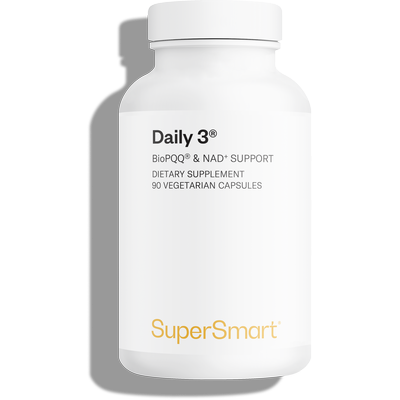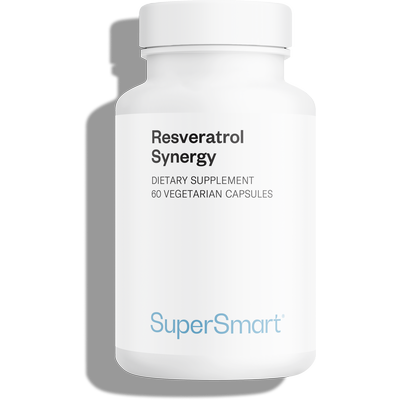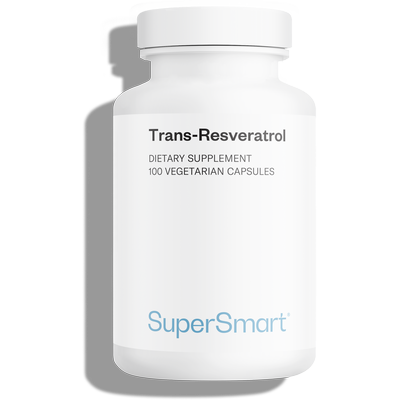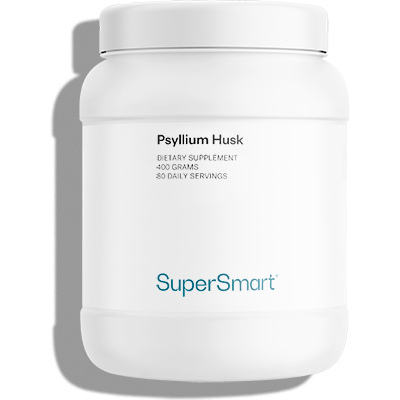Cutting calories by 15% for 2 years slows down the ageing process
 ”Ageing is not a slope that everyone goes down at the same speed. It’s a flight of irregular steps that some people hurtle down faster than others.”
”Ageing is not a slope that everyone goes down at the same speed. It’s a flight of irregular steps that some people hurtle down faster than others.”
No-one would argue with this theory, cited by Simone de Beauvoir in her book ‘La Vieillesse’ (The Coming of Age). We can all identify those among our friends and relatives who are ageing badly and those who remain amazingly ‘well-preserved’. Are they responsible for these outcomes? What are the mistakes made by some, and the good choices made by others? And if you’re among the former, what can you do to reverse the trend?
Scientists have just provided some answers to these questions by demonstrating that a simple reduction in calorie intake can significantly slow down ageing (1). In one of the first studies to explore the effects of calorie restriction over such a long period, 53 healthy individuals aged 21-50 were supervised for two years in reducing their calorie consumption by around 15%, without inducing any excesses or deficiency.
A 15% calorie reduction corresponds to around 300 calories for a woman and 375 calories for a man - approximately two cans (33cl) of fizzy drink, 100g of chips or two packets of crisps (single portions).
Throughout the study, the volunteers underwent a series of tests to both measure their actual calorie reduction (via a very precise isotope dilution technique) and evaluate several biomarkers of ageing (since physical appearance is always a less reliable indicator than physiological parameters).
Two years of calorie restriction: changes observed and measured
In these calorie-restricted subjects, researchers observed a systemic decrease in oxidative stress (which we know is associated with neurological conditions such as Parkinson’s or Alzheimer’s disease) as well as a fall in basal metabolism. Since metabolic by-products are known to accelerate the ageing process, this decrease could reduce the risk of chronic disease and prolong life expectancy!
Furthermore, the researchers also recorded an average weight loss of 8 kg (even though the volunteers did not follow a special diet and were not aiming to lose weight), as well as improvements in mood and quality of life, and in biomarkers of ageing.
All this, specified the study’s authors, without inducing the side-effects which sometimes occur with diets, such as anaemia, loss of bone density and menstrual disorders. “We found that even people who are already healthy and slim may benefit from calorie restriction”, commented study author Leanne M. Redman.
These findings lend credence to two of the most fascinating theories of ageing:
- The slow metabolism or ‘rate of living’ theory. A number of studies have shown that the more the metabolic rate is lowered, the greater the extension in life expectancy. In other words, when the body is perpetually functioning at full capacity (high-maintenance muscle mass, high dietary intake requiring considerable energy to digest, chronic stress, constant demands on the mind and body), it is less likely to last over the long term. Using the analogy of a vacuum cleaner which is used every day, compared with one that comes out of the cupboard once or twice a year, which do you think will last the longest? While this all seems quite obvious, for a long time the opposite was thought to be true – that for our bodies to be optimally maintained and ‘last longer’, they needed to be worked to the maximum.
This study found that a 15% reduction in dietary intake considerably lowered basal metabolism, which is essentially the energy required to maintain, at a minimum level, the metabolic activity of tissue, blood flow, and respiration, as well as energy-intensive cognitive processes. This is one of the potential explanations for the improvements in biomarkers of ageing observed by the researchers.
- The oxidative damage theory. This theory holds that over the long-term, free radicals generated as part of normal body function cause damage to lipids, proteins and DNA, leading to major dysfunction and chronic diseases such as atherosclerosis, cancer, diabetes and rheumatoid arthritis. In humans (2), as in primates (1), the more basal metabolism is raised, the greater the production of free radicals. This second theory thus supports the idea that lowering metabolism may help slow down the ageing process.
This new research follows numerous studies which have already shown the benefits of calorie restriction in animals, particularly in terms of longevity and delaying the development of age-related diseases.
How can you cut your calorie intake by 15%?
This study’s findings are so persuasive that we all want to know what practical measures we can take to cut 15% off our calorie intake and benefit from these same effects. What’s important to understand is that the participants here were closely supervised by nutrition professionals.
The main aim was tocut portion size, and not to reduce consumption of particular foods. Thus the volunteers were not deprived of anything and no food was banned. To ensure that lowering the participants’ calories would not also reduce their intake of vitamins and minerals, they were asked to take a daily multivitamin supplement similar to Daily 3 and a 1000mg calcium supplement (ie 2 capsules of Calcium-AEP 500mg).
They were, however, given simple tips on how to successfully reduce portion size over the long-term. The most effective of these undoubtedly concerned sources of dietary fibre (4-6). While these foods are gradually disappearing from our diet, they are nonetheless critical in reducing appetite and helping control calorie intake. They work by absorbing water and expanding, promoting the sensation of a full stomach.
So if we increase our consumption of dietary fibre foods while reducing our calorie intake, our bodies won’t notice that anything’s changed. Smart, eh? Particularly as there are simple ways of including them in our everyday diet:
- Always choose whole grain cereals.
- Make your own fruit juices but don’t remove the pulp.
- Add chopped nuts and seeds (flax, sesame, sunflower, nuts) to yoghurts and desserts.
- Include more pulses in salads and dishes.
- Take advantage of supplements containing natural-source soluble fibre such as CSAT (soluble pea fibre) or Psyllium Seed Husk These are excellent for curbing appetite and reducing calorie intake without the need for special diets.
Is there a way of mimicking the mechanisms of calorie restriction without actually cutting calorie intake?
Surprising as it may seem, it appears there is. Several years ago, scientists identified molecules capable of
This is precisely why the researchers are suggesting that the next step could be to “examine the effects of calorie restriction in conjunction with antioxidant foods or substances like resveratrol, which mimic calorie restriction”. Resveratrol is one of the most promising molecules for fighting ageing. It is mentioned here because it may play a role in calorie restriction and activate similar signalling pathways (7).
A number of studies have also shown the extent to which resveratrol benefits aspects of health directly linked to those of calorie restriction (8). Apart from its antioxidant benefits (including those related to neuronal cells (9-11)) and its effects on various signalling molecules (12), the fact that it obtained from natural sources is also appealing: it’s found in several plants such as peanuts, blueberries, pine bark and grapes. And of course, it’s also found in supplements in its trans form (trans-resveratrolResveratrol Synergy) for those wishing to benefit from some of the effects of calorie restriction without having to endure its restrictive nature.
|
Calorie restriction |
Resveratrol |
|
|
Positive points |
|
|
|
Limitations |
|
|
Key points of the article
- Calorie restriction increases longevity in most living species.
- Young, healthy individuals lost 8kg by cutting 15% of their calories over two years.
- Energy expenditure was reduced beyond weight loss.
- Oxidative stress also decreased supporting two key theories of ageing.
The study at the centre of the article
Leanne M. Redman, Steven R. Smith, Jeffrey H. Burton, Corby K. Martin, Dora Il'yasova, Eric Ravussin. Metabolic Slowing and Reduced Oxidative Damage with Sustained Caloric Restriction Support the Rate of Living and Oxidative Damage Theories of Aging. Cell Metabolism, 2018; DOI:10.1016/j.cmet.2018.02.019
References1. Leanne M. Redman, Steven R. Smith, Jeffrey H. Burton, Corby K. Martin, Dora Il'yasova, Eric Ravussin. Metabolic Slowing and Reduced Oxidative Damage with Sustained Caloric Restriction Support the Rate of Living and Oxidative Damage Theories of Aging. Cell Metabolism, 2018; DOI: 10.1016/j.cmet.2018.02.019
2. Heilbronn LK, de Jonge L, Frisard MI, DeLany JP, LarsonMeyer DE, Rood J, Nguyen T, Martin CK, Volaufova J, Most MM, Greenway FL, Smith SR, Deutsch WA, Williamson DA, Ravussin E (2006) Effect of 6-month calorie restriction on biomarkers of longevity, metabolic AGE (2011) 33:15–31 29 adaptation, and oxidative stress in overweight individuals: a randomized controlled trial. J Am Med Assoc 295 (21):2482–2482
3. Blanc S, Schoeller D, Kemnitz J, Weindruch R, Colman R, Newton W, Wink K, Baum S, Ramsey J (2003) Energy expenditure of rhesus monkeys subjected to 11 years of dietary restriction. J Clin Endocrinol Metab 88(1):16–23
4. Mâlkki Y. and Virtanen E., 2001, Gastrointestinal Effects of Oat Bran and Oat Gum A Review, Lebensm.- Wiss. u.- Technol.34; 337-347
5. Norton I.T., Frith W.J., Ablett S., 2006, Fluid gel mixed fluid gels and satiety, Food Hydrocolloids 20; 229-239
6. Marciani L, Gowland, P.A., Spiller, R.C., Manoj, P., Pretima M., Moore R.J., Young P., Al-Sahab S., Bush D., Wright J., Fillery-Travis A.J., 2000, Gastric Response to Increased Meal Viscosity Assessed by Echo-Planar Magnetic Résonance Imaging in Humans, The Journal of Nutrition, 130 (1); 122-127
7. Roth GS, Spindler SR (2001) Caloric restriction mimetics: metabolic interventions. J Gerontol A Biol Sci Med Sci 56(1):20–33.
8. Baur JA (2010) Resveratrol, sirtuins, and the promise of a DR mimetic. Mech Ageing Dev 131(4):261–169
9. Alvira D, Yeste-Velasco M, Folch J, Verdaguer E, Canudas AM, Pallàs M, Camins A. Comparative analysis of the effects of resveratrol in two apoptotic models: inhibition of complex I and potassium deprivation in cerebellar neurons. Neuroscience. 2007; 147(3):746-56.
10. Kim YA, Lim SY, Rhee SH, Park KY, Kim CH, Choi BT, Lee SJ, Park YM, Choi YH. Resveratrol inhibits inducible nitric oxide synthase and cyclooxygenase-2 expression in beta-amyloid-treated C6 glioma cells. Int J Mol Med. 2006; 17(6):1069-75.
11. Sharma M, Gupta YK. Chronic treatment with trans resveratrol prevents intracerebroventricular streptozotocin induced cognitive impairment and oxidative stress in rats. Life Sci. 2002; 71(21):2489-98.
12. Pervaiz S, Holme AL. Resveratrol: its biologic targets and functional activity. Antioxid Redox Signal. 2009; 11(11):2851-97.

The most complete multivitamin supplement you can take in a single capsule
www.supersmart.com
Improves biomarkers of aging and promotes expression of longevity genes
www.supersmart.com
Standardised extract of Polygonum cuspidatum
The high dose recommended in many studies
All rights reserved
Free
Thank you for visiting our site. Before you go
REGISTER WITHClub SuperSmart
of exclusive benefits:
- Free: our weekly science-based newsletter "Nutranews"
- Special offers for club members only


















